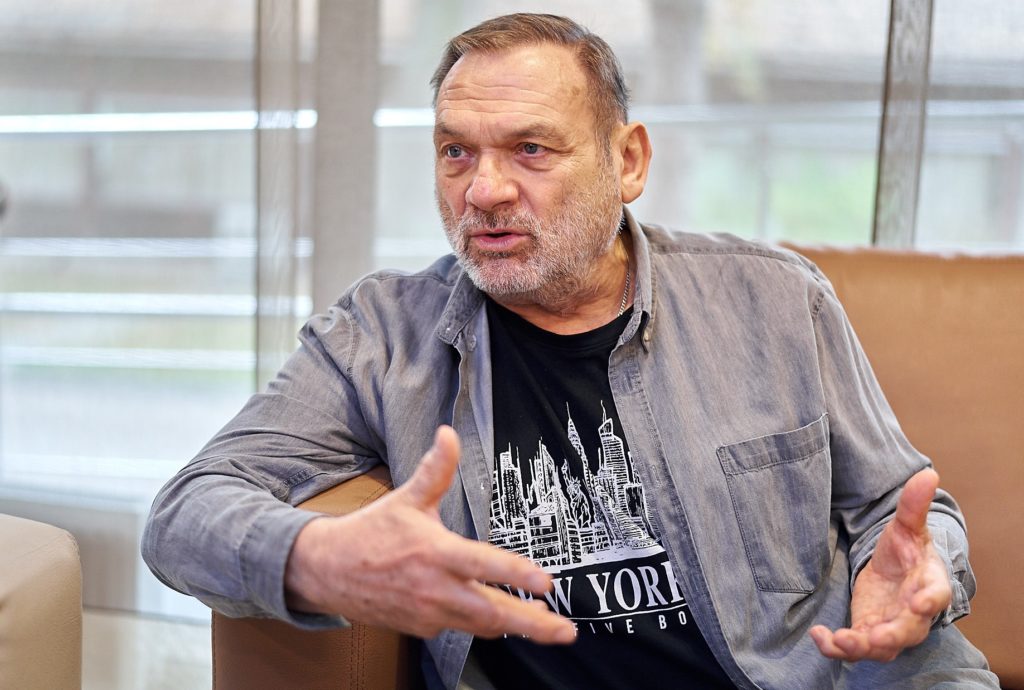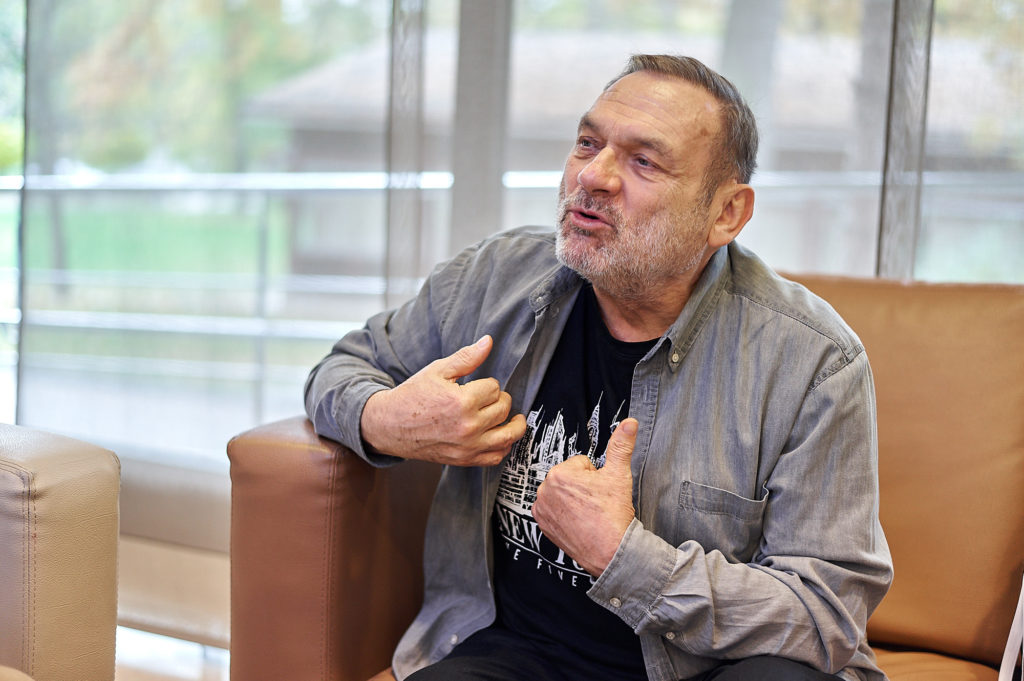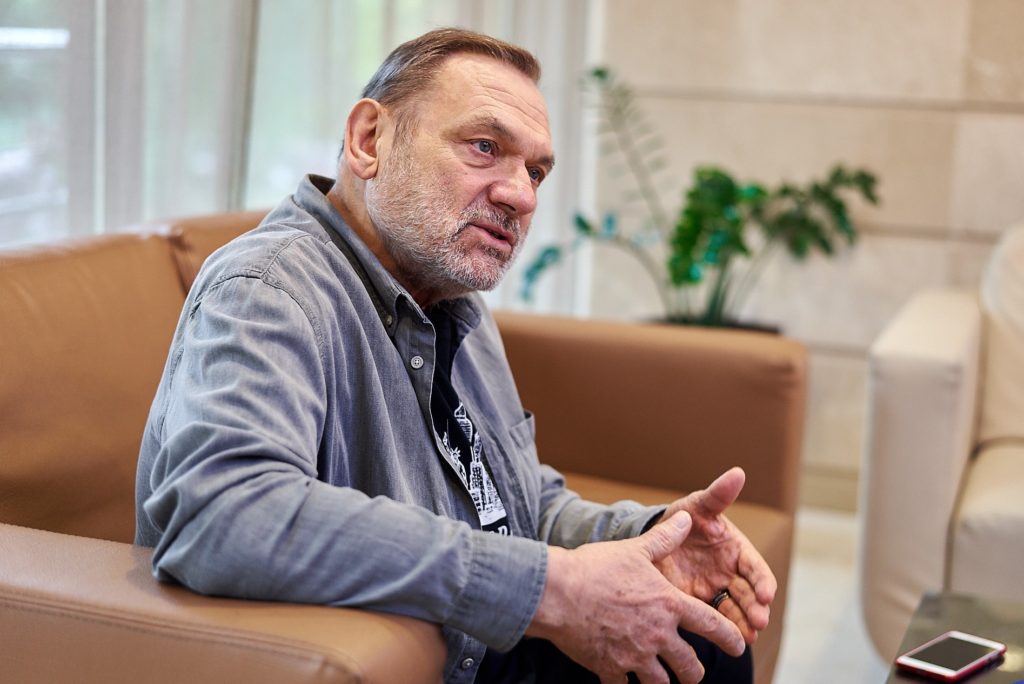Of the existing diseases, HIV is a relatively young and not comprehensively studied one. Over the past three decades, thanks to the effective application of ARV therapy, the disease has left the category of deadly, and passed into the category of chronic, meaning one can live with it to ripe old age.

How to live with HIV to the full extent and happily, what is needed for it, tells Wojciech Tomchinsky – the leader of All-Polish Network of PLWHA “SIEC PLUS”, representing ECUO in Poland.
– I have been living a long life, already, I’m enjoying it, and, I think, I will live long. For me, HIV is only a petite part of my personality. For every person, despite his/her HIV status, it is important to think positively, to love life and him/herself, even in the gloomiest weather. And, of course, it is necessary to take care of yourself and your health. If you are HIV positive, it’s highly important to take drugs timely, listen to your doctor and trust him/her. And, in general, it is necessary to love people.
– How important is to change attitudes of the society to HIV? Over the past three decades, it was named the “plague of the millennium”, which finally intimidated the humankind. As a result, we have extraordinarily negative and discriminatory attitude towards people living with HIV.
– Slowly, the attitudes of the society towards HIV-positive change, the more people know about this topic, the less they have stereotypes in their consciousness and perception of the world. Fortunately, the media rhetoric also changes, from intimidation by the “plague of the century” to the constructive studying of the matter. After the massive adoption of antiretroviral therapy, PLHIV ceased to die, and their life quality improved. It became evident that we are now dealing with the chronic disease that with time can become entirely curable. The clinical research of new drugs add-up optimism. Even now, when HIV-positive people take only one pill per day, to a large extent already, one can forget about having HIV.
Personally, I never had that feeling that somebody doesn’t love me because I’m HIV-positive. My family, my children, and other people have never shown me any negative attitude regarding this status. The more press writes about HIV, tells how to avoid it, the less prejudiced people are, they must be guided by the knowledge, not fear which is full of ignorance.
While HIV-positive people have also changed for the last thirty years. We understand that life doesn’t end with the diagnosis, if you take care of yourself, you can live to ripe old age, and HIV is not an obstacle for this.
– Not all people have such a positive attitude towards their HIV status
– It is mistakenly to expect that just because of your HIV status all people around must at once be compassionate and start to help you. First and foremost, you need to understand that there is nothing to be compassionate about. It is necessary to pull yourself together and go on. The fact that you have HIV need to know only the closest people – wife, husband, girlfriend, boyfriend, it is different for everybody. Believe me, if you make public any disease you have, most people will avoid you. There are things that worth keeping at yourself. The attitudes of others towards you should be formed the based on your personal and professional quality rather than the presence of this or other diagnoses. It is crucial to change one’s attitude to health, no to expose it to other risks, and all will be well.
– Does discrimination by HIV status is a common phenomenon?
– One can face a negative attitude in France, the United States and everywhere. Usually, it happens in small towns and villages where people are conservative. In metropolitan areas there are no such things, the society is more liberal, and a person with HIV can easily get lost among millions of people, as no one draws close attention, and such a person lives his/her life. Yet, thirty years ago when there was no antiretroviral therapy, the HIV-positive people looked ill and thin. People actually shied away from them, saying, “he/she probably has AIDS”. It is now safer to HIV than hepatitis C or cancer. Still, some people come up with ignorant things about HIV and spread them.

– For whom today it’s more important to know that HIV is not a fatal diagnose, for a person with a positive or negative status?
Firstly, for the one who just learns that he/she is infected. He/she must know that a long life is possible if take care of oneself and get treatment. For HIV-negative people, it is also essential to understand how the virus is spread, and how to avoid it, and if you failed to prevent it, then how to behave and what to take.
– At international conferences and meetings, you speak a lot about “HIV and aging”. How often is HIV first time diagnosed among the older adults?
– For the last years, more often. The press has more and more information about this; there are drugs, good doctors, and clinics. People are now not afraid to test as they were before, and I understand that HIV came far beyond the key groups. Also, thanks to pharmacology and the appearance of sexual stimulants, seniors live rich sexual life. For example, here in Poland, an 86-year-old man was first diagnosed with HIV.
– Still, among people of middle and senior age often prevails an opinion that safe sex is important only for the young.
– It is highly important question, because the majority of HIV cases is revealed among MSM and heterosexuals who believe that HIV is not their business, but a problem of drug addicts and others. It’s wrong. I was also infected because I was told “it is not your business, you are not a drug addict”, and I believed, it was 30 years ago.
– Combating HIV transformed for you from a personal story into an active public activity both on national, and on international levels.
– Movement of care of HIV-positive people originated in America, then spread to Europe and beyond to all world. And thanks to this movement, millions of lives were rescued. Our All-Polish Network of PLWHA “SIEC PLUS” works throughout the country, and at the same time, we are studying with high interest the experience of our colleagues from Belarus, Ukraine, Lithuania and other countries. We managed to reach significant results mainly due to international integration. The epidemic has no boundaries, so you cannot fight it locally only. Participation in regional associations such as ECUO helps to coordinate our activities, and effectively defend the interests of people living with HIV on the international level, impact state policy.

– What challenge will PLHIV community have to face in the nearest future?
– The nearest challenge, for me personally, and for millions of people across the world is HIV and aging. HIV is a relatively young disease, and therefore only now the age-related features and how people should adapt to them are being studied. Thanks to ART, HIV-positive people may live to ripe old age, now, it’s important to develop recommendations on how to take care of one’s health properly.
I have been living with the virus for 31 years, and more than ten of them, I had zero viral load, meaning I’m not spreading the HIV. I am very optimistic about the future because the efficiency and quality of ART continue to improve. It is becoming easy to use and has no severe collateral effects. The day will come when HIV will be entirely curable, the clinical trials of innovative drugs are going on now.
– While HIV is not curable, what would you advise to people who were just diagnosed with HIV?
– First of all, love yourself and believe in your forces. And say to the virus “well, it’s a friend who came uninvited, but it stays with me forever”. Secondly, start taking ART, and find a really good doctor whom you will trust. And continue to live a full, happy life!
